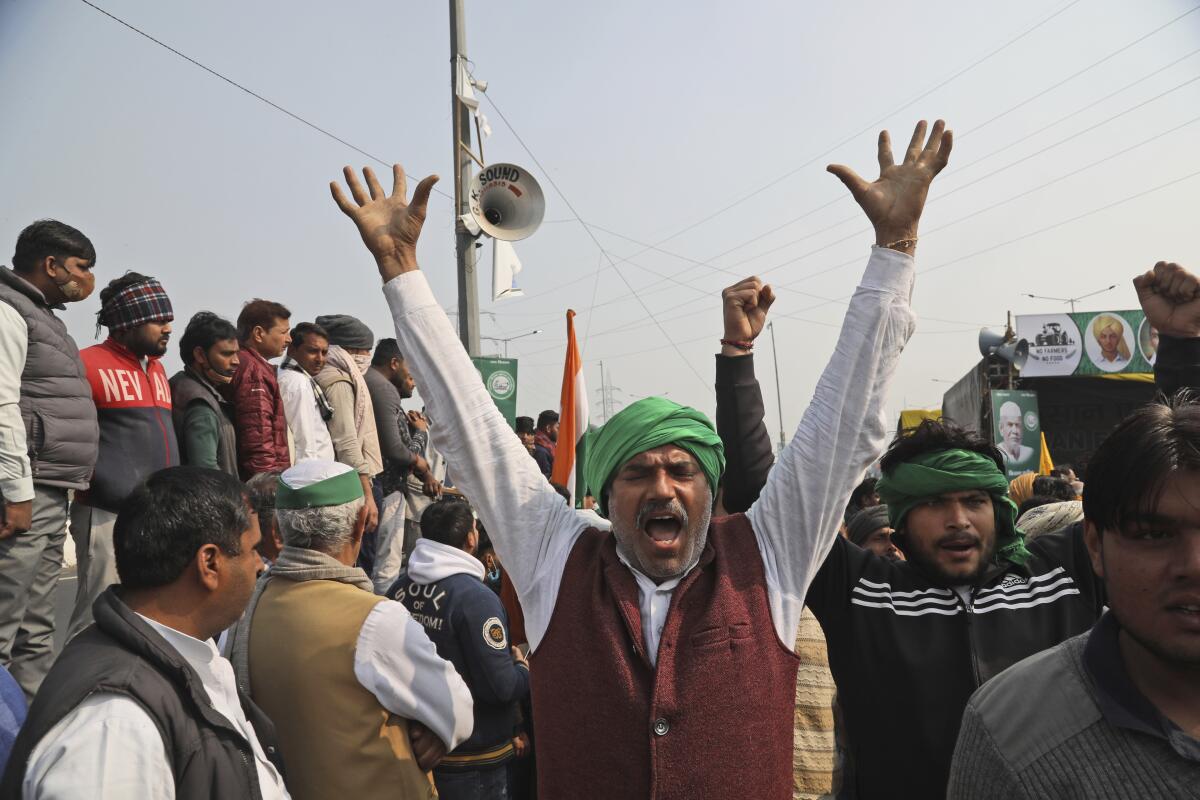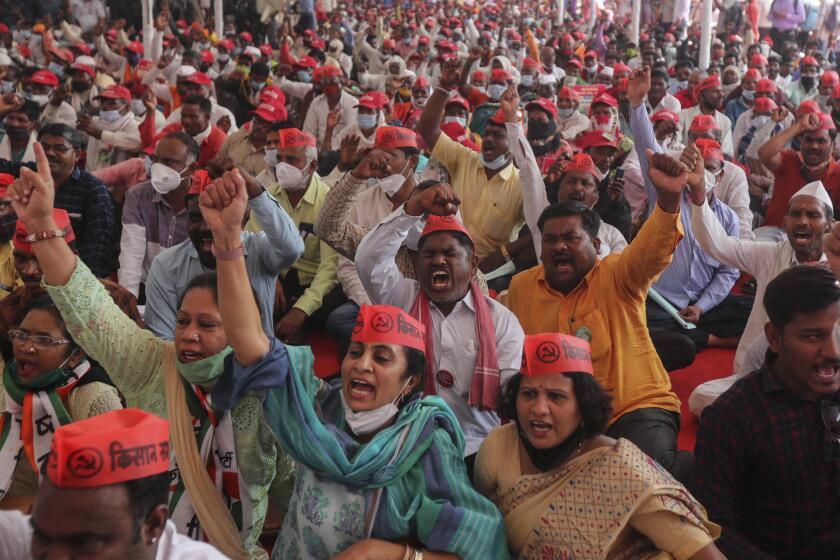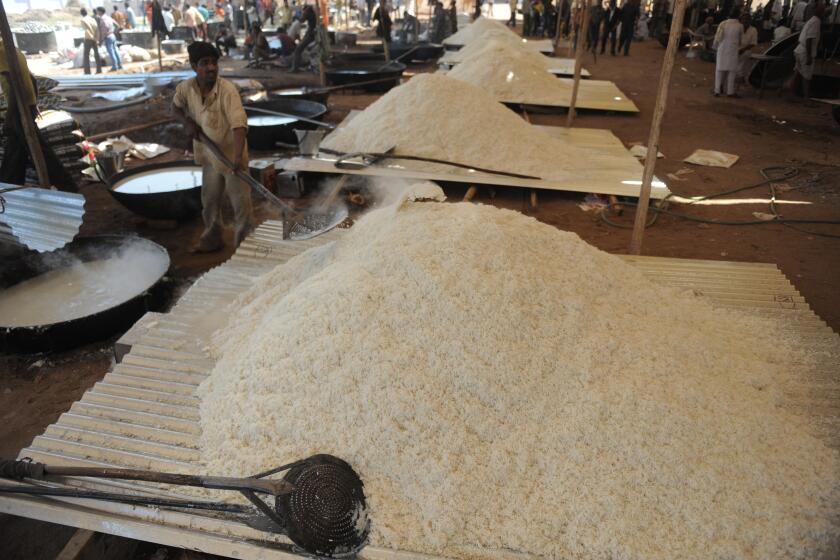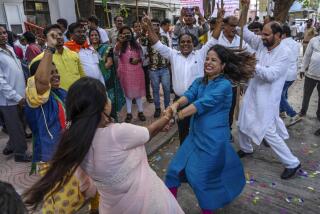Indian farmers begin hunger strike amid fury against Modi

NEW DELHI — Indian farmers and their leaders spearheading more than two months of protests against new agriculture laws began a daylong hunger strike Saturday, directing their fury toward Prime Minister Narendra Modi and his government.
Farmer leaders said the hunger strike, which coincides with the anniversary of the death of Indian independence leader Mohandas Gandhi, would reaffirm the peaceful nature of the protests.
“The way the government is spreading planned lies and violence is condemnable,” according to Samyukta Kisan Morcha of United Farmers’ Front, a coalition of farmers unions. It includes hundreds of protest leaders taking part in the strike.
Farmers are demanding the withdrawal of laws passed by Parliament last September. They say the legislature will favor large corporations, devastate the earnings of many farmers and leave those with small plots behind.
The long-running protests have largely been peaceful but violence erupted on Tuesday, India’s Republic Day, when tens of thousands of farmers riding tractors and on foot stormed the 17th century Red Fort in a brief but shocking takeover.
The presence of women in India’s biggest mass movement in years reflects profound opposition to a slate of agriculture reforms.
Clashes between the protesters and government forces left one protester dead and nearly 400 police officers injured. Officials did not say how many protesting farmers were injured, but television channels showed many of them bloodied after police in riot gear hit them with batons and fired tear gas.
Police also filed cases against journalists, activists and opposition politicians, accusing them of sedition and inciting violence.
Modi and his allies have described the laws as necessary to modernize Indian agriculture. But farmers have vowed to stay at protest sites until the laws are repealed.
Since November, tens of thousands have hunkered down at the edge of the capital while multiple rounds of talks with the government have been unsuccessful.
India’s effort to gain protected status for basmati rice exports in Europe has irked Pakistan, the world’s No. 2 producer.
The protests by farmers, the most influential voting bloc in India and the economy’s bloodline, pose the biggest challenge to Modi. They brought together 16 opposition parties on Friday when they boycotted the president’s address to Parliament.
Sporadic clashes between protesters, police and unidentified groups shouting anti-farmer slogans have broken out since Tuesday’s tractor rally.
On Friday, a group of around 200 people, claiming to be local residents, barged into one protest site despite heavy security, threw stones at farmers and damaged tents pitched by them.
The group demanded that farmers vacate the area and said they had “insulted” the national flag during their tractor parade on Republic Day. The protesting farmers, however, alleged that the vandals were largely made up of members of a Hindu nationalist group that has close ties with Modi’s party.
More to Read
Sign up for Essential California
The most important California stories and recommendations in your inbox every morning.
You may occasionally receive promotional content from the Los Angeles Times.












